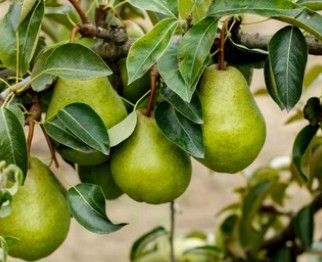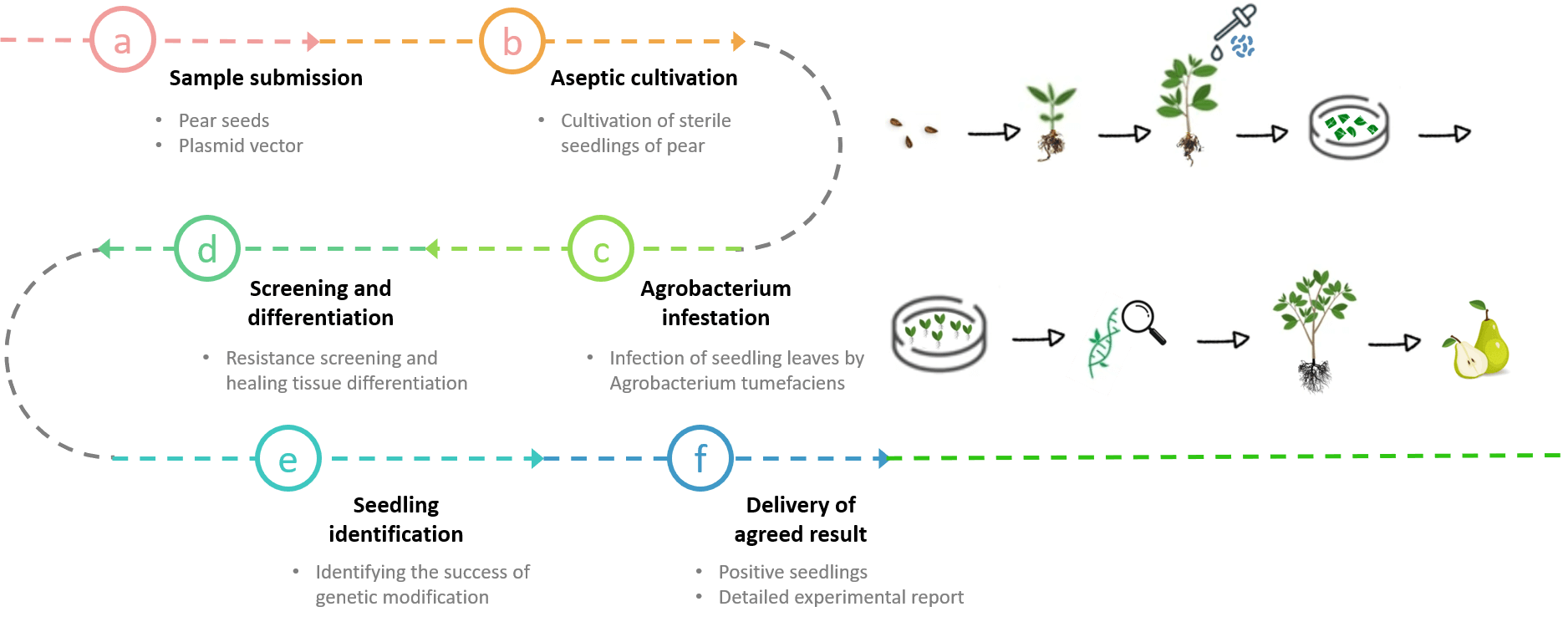Pyrus sorotina, also known as the pear tree, is a perennial deciduous fruit tree of the genus Pear in the family Rosaceae. Pear has high nutritional value; in addition to containing more than 80% water, it also contains carbohydrates, mineral elements, trace elements, carotene, thiamin, riboflavin, and ascorbic acid. Pear breeding originally had many difficulties, such as complex genetic background, a long breeding cycle, and the lack of efficient and stable genetic methods. With the development of molecular biology, genetic engineering has increasingly become a new means for pear trees to achieve efficient breeding. Genetic engineering technology can greatly overcome the shortcomings of traditional breeding while having the advantages of simple operation, high transformation rate, and short cycle. The application of molecular biology techniques can provide a new tool for pear tree genetic function research and genetic improvement and lays the foundation for improving the success rate of pear tree genetic transformation.

Lifeasible has a team of experienced botanical experts who can provide you with a one-stop solution for genetically modified pear trees. Our pear genetic transformation services are comprehensive and specific, covering protocol design, vector construction, plasmid transformation, positive plant screening, and identification. We use Agrobacterium-mediated genetic transformation to introduce target genes into pear cells with high transformation efficiency and low T-DNA copy integration. Our pear genetic transformation services are based on customized solutions to ensure the success of your project. For vector customization services, you can choose from the following genetic engineering technologies.

Customers can provide constructed pear tree transformation vectors directly, and Lifeasible also offers vector construction services.
| Concentration | Volume | Other requirements |
| 80-100 ng/μL | ≥10 μL | no degradation & no contamination |
| Bacterial broth | Bacterial plate |
| Bacterial broth up to 1-year-old, preserved in glycerol | Bacterial plate activated within one week |
*For special varieties and customized services, the experiment time and the number of seeds needed may be increased. For this, please contact our staff for more information.
*Plasmids, E. coli, and Agrobacterium require cryopreservation and mailing under dry ice to avoid degradation, inactivation, and impact on experimental results.
*The strains, vectors, and receptor materials used in the experiment can be saved for free for half a year for customers, and you can pick them up at any time if you need them.
You can always contact our staff for continuous follow-up on the experimental process. In addition, our staff will keep our customers informed when the transgenic experiment reaches a critical point. Based on our one-stop, customized service, you only need to submit pear tree samples as required, and then you will get the positive seedlings and detailed experiment report within the agreed time. Each step of the experiment will be conducted by our experienced experts under a standardized process and following strict QC standards.
Lifeasible's experts have comprehensive knowledge and years of experience solving technical problems and challenges in pyrus sorotina transformation. We can provide customized solutions to help you study a wide range of pear tree varieties. Our services guarantee the success of your project. For more information or any inquiry needs, please feel free to contact us.